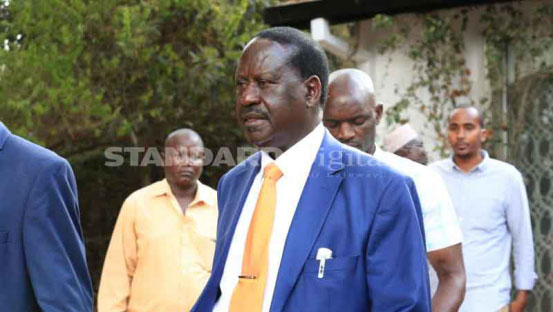×
The Standard e-Paper
Join Thousands Daily

NAIROBI, KENYA: When Attorney General Githu Muigai warned former Prime Minister Raila Odinga of grave consequences in the event he was sworn in as “the People’s President” he was heavily criticised by many.
Some viewed Prof Muigai’s warning to be legally groundless, while others sought to provide justification for Odinga’s swearing-in, locating it within the realm of freedom of expression, which they argued was exercisable by whatever means so long as the act itself was not unlawful.